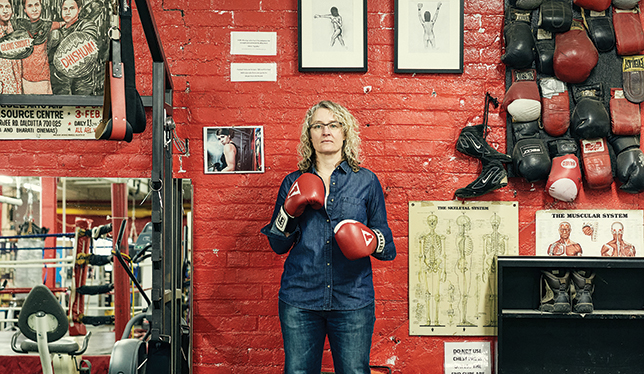Cathy Van Ingen came to boxing in a way you might expect from an academic – through research. A history course had her learning about legends like Jack Johnson and Muhammad Ali, and seeking out stories of the sport’s female pioneers like Emma Maitland and Aurelia Wheeldin. “I read my way into the boxing ring,” she says. And once she stepped onto the canvas, she was hooked.
“I immediately fell in love with how visceral it is and how hard it is, and how it’s really like learning a language.” As co-founder of Shape Your Life, a free boxing program for women and trans survivors of violence, Dr. Van Ingen has taught this language as a way of overcoming trauma.

Those who’ve experienced violence have “lost control over their body,” she says. “The gym is one place – for some of them it’s the only place – where they feel their body is back under their control.” Over the course of 10 years, the Brock University professor has supported more than 1,200 women – refugees who fled violence abroad, sex workers, women with violent partners or who grew up in violent homes – to not only hit a speed bag, but build resiliency and community connections.
To that end, the program takes a “trauma informed” approach: it adapts to the realities of living with violence, from poverty to physical and mental challenges.
Shape Your Life recently received $420,000 from the Public Health Agency of Canada to investigate the effects of what Dr. Van Ingen calls “physical activity interventions” for survivors of violence. With the help of Brock exercise psychologist Kimberley Gammage, Dr. Van Ingen will engage boxers in surveys, focus groups and interviews throughout the 14-week program.
“It’s complicated because all funders really want is this beautiful, tidy, redemptive narrative,” Dr. Van Ingen says. Instead, her tools will encourage participants to share, in their own words, their successes and their continued struggles. The point, she says, is to “never lose the woman in the statistic.”
This is a very Good article on the benefits of women and younger girls getting into Boxing, wither to Box competitively or to Learn and feel confident enough to handle situations that will come there way, By that I mean Bullies or a Violent member of there Family or Friends, I am a fully Qualified A,B,A, Coach, and have been coaching Students at Worcester University for over 10 years, There we have had a Large number of Females, learn to Box and have been very Successful in Boxing for the University in the University Championships, To see these women first come into the Gym, very nervous and very shy , Then to watch them Develop into very Good and Very capable Boxers in there own right is One of the Great Feelings for a Coach in this Wonderful Sport, I only wish More Young Girls would get involved, We should let it be known that YOU DONT HAVE TO BOX, TO BE INVOLVED , JUST COME ALONG AND LEARN HOW TO HANDLY THE SITUATIONS THAT WILL COME YOUR WAY,